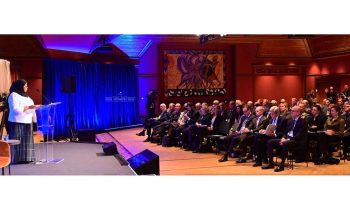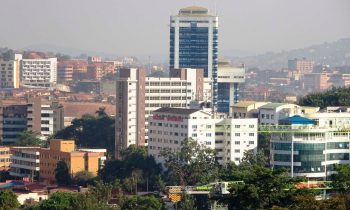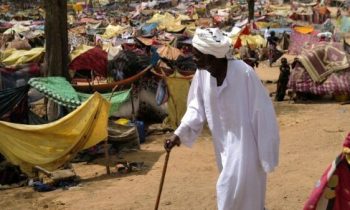 A new development-finance venture that will control banking and other assets worth more than $660 million across sub-Saharan Africa plans to hire as many as 20 people including analysts to manage its investments and help it spend another $300 million on acquisitions.
A new development-finance venture that will control banking and other assets worth more than $660 million across sub-Saharan Africa plans to hire as many as 20 people including analysts to manage its investments and help it spend another $300 million on acquisitions.
The Norwegian Investment Fund for Developing Countries, the state-owned financier known as Norfund, is pooling its investments on the continent with Dutch lender Rabobank Groep and Dutch development bank FMO to create Arise, which will be based in South Africa. Arise will start operating in January with investments in 20 African countries and enough funding to be able to reach almost $1 billion of assets within five years, said Deepak Malik, the southern African head of Norfund.
“We’re going to go through an extreme recruitment phase, looking for senior investment staff and analysts and more,” he said in an interview in Johannesburg, where the company has five employees. “We’ve also got to get regulatory approval in all the African countries we operate in. That could take us six to eight months.”
The venture will hire 20 to 25 people over the next six months and is also contemplating moving its sub-Saharan African headquarters to Cape Town, Malik said.
Africa struggles
Even though European banking regulations have made it more expensive to hold foreign investments, Rabobank decided not to exit its African assets and instead set up the partnership with Norfund and FMO. Utrecht, Netherlands-based Rabobank, which specialises in agricultural lending, is ensuring its shareholdings are below regulatory thresholds that will require it to set aside capital for the investments.
The formation of Arise comes after growth in sub-Saharan Africa eased to 3.5 percent in 2015, the slowest pace in 15 years, with the International Monetary Fund predicting an expansion of 3 percent for this year.
Arise’s ambition “is to build strong and stable financial-service providers that will serve retail, small-and-medium enterprises, the rural sector and clients who have not previously had access to financial services,” the three partners said in a statement on August 4.
Norfund’s investments span a solar park in Rwanda, biogas generation in South Africa, a 12.5 percent holding in Kenya’s Lake Turkana wind project, which will be the largest on the continent, and 12 percent of Equity Group Holdings, Kenya’s biggest bank by market value.
Young population
“Africa has the world’s youngest population, the lowest banking penetration rate, a weak financial sector in terms of capital and the foreign banks are struggling with regulation in their home markets,” Malik said.
The continent has the lowest access to financial services in the world, with less than a quarter of the population owning a bank account, compared with about 34 percent in Latin America, according to a 2015 report by the African Development Bank Group. Further, with over 40 percent of its working-age population between the ages of 15 and 24, Africa is the youngest continent in the world, United Nations research shows.
Norfund, which has offices in Johannesburg, Maputo and Nairobi, will have a 48 percent stake in Arise, FMO will hold 27 percent and Rabobank just under 25 percent, Malik said. Banco Montepio, a Portuguese financial services company, may join the partnership, the companies said in a statement on August. 4.
Asset sales
Norfund has invested about $2 billion in Africa in the past 13 years. Half of its investments are in clean energy with financial services its next biggest investment portfolio. It typically takes minority equity stakes and its African investments span countries including Uganda, Rwanda, Kenya, Mozambique, Zambia and Zimbabwe.
“Norfund is already working on two transactions with two listed companies, one in South Africa, and one elsewhere,” Malik said, without giving more details. “After Arise starts in January we want everyone to get entrenched with the portfolio in the first six to eight months. You might also see a selloff in some assets we don’t want to stay in as the new company.”
(Bloomberg)



